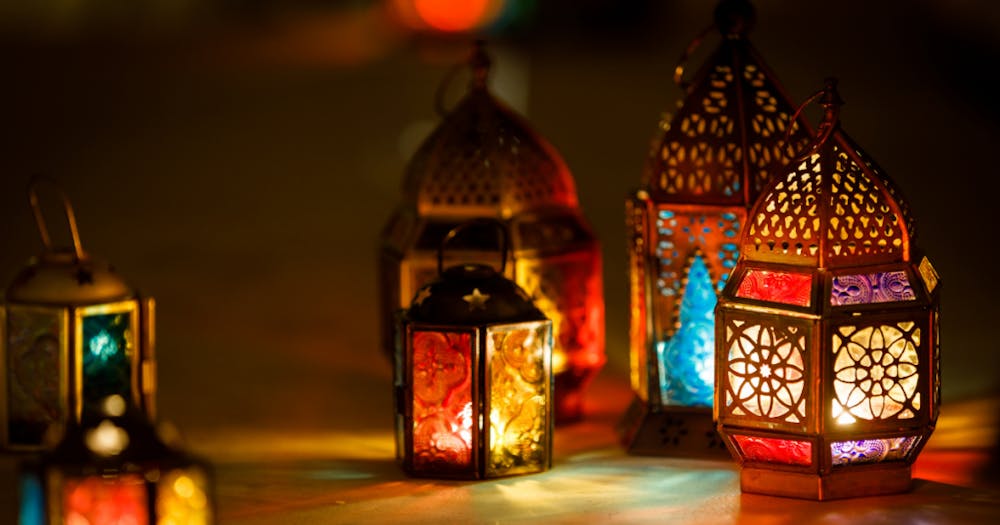After one month of fasting and taking time to reflect, Muslim students are preparing to finish celebrating this year’s Ramadan alongside the demands of being in college.
Tariq Khairullah, a junior nursing major, is an events coordinator of the Muslim Student Association. He said Ramadan enables him to strengthen his connection to God while placing him in “good company.”
“When I’m busy with the semester, I don’t really get to spend as much time at the mosques like I used to,” Khairullah said. “I’m busy studying. I’m busy with school, with clubs and with work, but Ramadan is a time that grounds me again.”
Khairullah said during weekends, he works with the youth at his local mosque. He said during Ramadan, it can be “tricky” to balance school, mentoring and time for worship.
Khairullah said the 30 days of Ramadan are defined by “self-discipline and self-control.”
“I take this month as an opportunity to set new standards for myself, to break old habits, to get out of these loops of sin and then establish new positive behaviors,” Khairullah said. “The key thing for me is I try to make it very attainable.”
Khairullah said fasting essentially allows you to “reshape your own mind and soul.”
“Our cardinal desires are to eat, to drink, to reproduce, all of that. We are abstaining from it, and it teaches us, ‘If I can stay away from these things, what’s stopping me from staying away from these other sins?’” Khairullah said. “It really is that reset button.”
Ibrahima Ndaw, a senior political science major, is the president of MSA. He said the most difficult challenge for students during Ramadan is loss of sleep.
“At the end of the day, I’m still going to the mosque at night, in the morning, doing my five daily prayers, and making sure that everything else in my life revolves around Ramadan rather than having Ramadan revolve around everything else,” Ndaw said.
Ndaw added that he likes to break his fast with a cup of coffee.
Samia Raza, a sophomore art history major, said a person’s good deeds are “weighted a lot” during Ramadan.
“One thing that we do often is we try to read the entire Quran in the 30 days,” Raza said. “I don't do it now because of college, but I try to do small things like staying calm and kind and praying as much as possible.”
Lassana Fisiru, a junior communication major, said Ramadan teaches him not to take things for granted and emphasizes the access to food as a luxury.
“There’s a lot of people all over the world that don’t have any food and they’re hungry all the time,” Fisiru said. “The pain and suffering we may experience for the few hours that we’re fasting is nothing compared to the suffering of those who don’t have any food or resources at all.”
Fisiru said during Ramadan, he truly strives to put things into perspective and better himself as an individual.
“When I'm fasting, I don’t like to sit around and do nothing,” Fisiru said. “I like to be productive. I like to participate in activities. I like to do things that I know are gonna make me exhausted just because it makes it all the more worth it when you do break the fast.”
Fisiru said he has been fasting the entire month of Ramadan since he was eight years old.
“Ramadan was in the summer around that time, so it was long summer days where we were outside playing all the time, but that didn't stop us from participating in our fast and it didn't distract us from what our main purpose was during that time, which was to fulfill our fast,” Fisiru said.
Fisiru said the ideals behind fasting run deeper than refraining from food, drink and sexual activity.
“It’s about building more of a spiritual connection and being a better version of yourself, of abstaining from the things that you know would take you further away from God, and not partaking in things that you know aren’t beneficial to you or anyone else,” Fisiru said.
Fisiru added that although he was born and raised in the United States, he lived in West Africa for four years. He said because of his minority status in the United States, the celebration of Ramadan in West Africa felt “much more communal.”
Jeanin Jaber, a sophomore history major, said Ramadan is “a time to reflect on everything you have when all you think about is food.”
“Those ten minutes after you finally break your fast, you look back at it like, ‘Wow, this whole day I was complaining, and in ten minutes, I’m satiated completely,’” Jaber said. “It really makes you think of the bigger picture.”
Peyton Hruska can be reached at peyton.hruska@student.shu.edu





